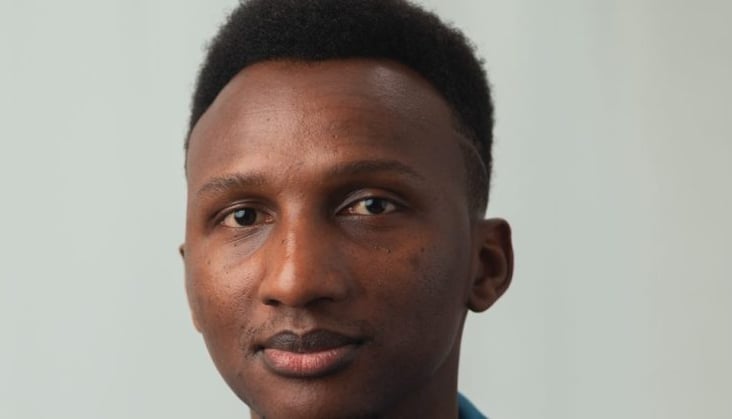
By Chinasaokwu Helen Okoro
Kenyan novelist Dennis Mugaa takes a page out of history in his collection of interconnected short stories that examine the complexities of life, love, and politics around the African continent.
In Kenyan author Dennis Mugaa’s debut collection of interconnected short stories that begins in the early 1960s, Half Portraits Under Water runs chronologically until today, loosely following several characters.
The common thread throughout is the character of Wangari, who we first meet in New York, where she is a foreign student, part of the Kennedy Airlift programme organised by trade unionist and political leader Tom Mboya to bring students from East Africa to study in the United States.
EVERYTHING IS POLITICAL
Mugaa tells The Africa Report that the inspiration for the first story, ‘The Distance In-Between’ came from when he travelled to New York in 2017 as a student and read about the airlift programme, which coincided with the ongoing civil rights movement in the US and Kenya’s independence.
Wangari’s boyfriend, a Black American involved in the civil rights movement, wants her to stay in the US, but she has been offered a job at the newly-independent ministry of foreign affairs in Nairobi.
Wangari appears in a number of stories in the book, but is mostly described by members of her family, although she is one of the witnesses in the second story about the assassination of the minister she is working for.
Set in 1969, Mugaa reimagines the assassination of Mboya, then minister of economic planning and development who was gunned down as he walked out of a pharmacy. “We still don’t know what happened to Mboya,” says Mugaa, whose story examines disinformation, narratives, and “the lack of truth”.
Mugaa’s quiet and deeply compassionate stories often describe the intimate inner lives of his characters, but their lives are also framed in a wider perspective that is often based on moments in Kenyan history, and are concerned with socio-political situations, because, as he says, “everything is political”.
Whether Mugaa is writing about grief, refugees, police violence, or the collapse of public institutions, he is concerned with the reality that surrounds him.
WRITING EXPERIENCES
Mugaa was raised by his mother in Meru, before moving to Nairobi as a teenager. He was always a voracious reader, but never thought about writing as a career until he met the author Yvonne Adhiambo Owuor in 2018.
“It was transformative for me; I saw what a writer could be, and she encouraged me,” he says.
He began writing the short stories that are included in Half Portraits Under Water, completing the collection in 2023, following an MA in Creative Writing from the University of East Anglia.
“There are certain things you can’t write with honesty unless you’ve experienced them,” says Mugaa, which is why he found the story ‘The Only One I Have Not Lost’ the most challenging to write.
Somalis and the shadow economy
In it, he writes from the point of view of a female Somali refugee living in Eastleigh who runs a small restaurant. If you live Nairobi, it’s impossible not to notice Somalis, Ethiopians, or Rwandans, says Mugaa.
He was curious about the Somali experience and Kenya’s encampment policy that began in the 1990s, restricting the refugees’ freedom of movement, but has since gone through various policy acts.
Mugaa says he thought about what he might do if he were a refugee in another African city. “Maybe I’d have a skill set, so would I just go to the [refugee] camp and wait for [the] UN [United Nations] to help me? I doubt it
“Somalis brought business savvy from Mogadishu which has enriched the community and capital,” says Mugaa, citing Nobel prize-winning author Abdulrazak Gurnah who has often spoken about how displaced people bring benefits to the society where they arrive as refugees or migrants.
But Mugaa was also fascinated by the idea that a person in exile lives two lives at once – their life in the present as well as the life that they have left behind.
“That intersection opened up the whole story for me,” he says.
…and on to Nigeria
In the short story ‘Ways of Going Home’, Mugaa takes the reader to Nigeria, which he got to know when he spent six weeks at a writer’s residency there.
Nigeria was inspiring because “there is so much happening that you never lack for something to write about”, he says. But Nigeria also allowed Mugaa to witness “a deep collapse of public institutions, and a dysfunctionality that I hadn’t seen before, and how all these talented people have been betrayed by their government”.
In Mugaa’s story, however, set in 2007, a Kenyan family in Nigeria has to prolong their stay in Lagos as the contested Kenyan elections lead to post election violence.
When you reveal a wound in someone’s life it brings out more stories that unfold.
The collection takes its name from the story ‘Half Portraits Under Water’,which explores death and grief, themes that appear in several of the stories.“When you reveal a wound in someone’s life it brings out more stories that unfold,” says Mugaa.
Although he says he didn’t harness his own personal grief which he experienced when his grandmother died, he did use the notion of time, and how long it takes to get over a death, and “the cloud that hangs over you.”Critic of the government.
As a young writer, Mugaa says he feels very lucky to be able to “read and write and follow through with what is in your heart, which is very fulfilling”.
Still, he worries about Kenya and has been outspoken in his criticism of the current government.We are not going in the right direction in Kenya. We have a president who doesn’t listen to the population. People are being denied health care,” he says.
“There is a critical failure of some institutions. The space for social mobility is narrowing, and people can’t get access to loans for university anymore.”Mugaa’s stories clearly have resonance with readers, and his collection was included in Brittle Paper’s 100 notable African books of 2024.
He is currently working on his first novel about a Rwandan in Kenya who works for a Kenyan artist who has returned from political exile.
Mugaa says the story will look at “how we enable regimes, and how they can turn on us”.He is already impatient to begin his second novel.



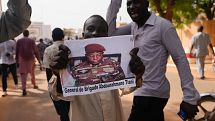 Man Gambles Away N33m Intended For Studies Abroad On Sports Betting, Appeals For Financial Assistance
Man Gambles Away N33m Intended For Studies Abroad On Sports Betting, Appeals For Financial Assistance 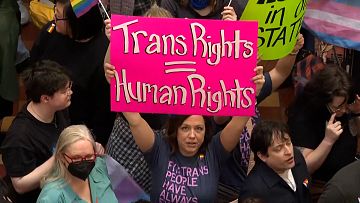 Protests Break Out As Iowa Bill Threatens Gender Identity Protections
Protests Break Out As Iowa Bill Threatens Gender Identity Protections 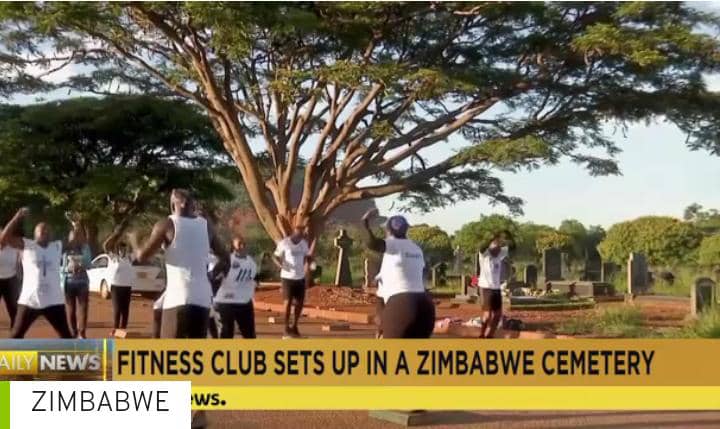 Zimbabwe : Fitness Club Helps Elderly Fight Chronic Diseases
Zimbabwe : Fitness Club Helps Elderly Fight Chronic Diseases 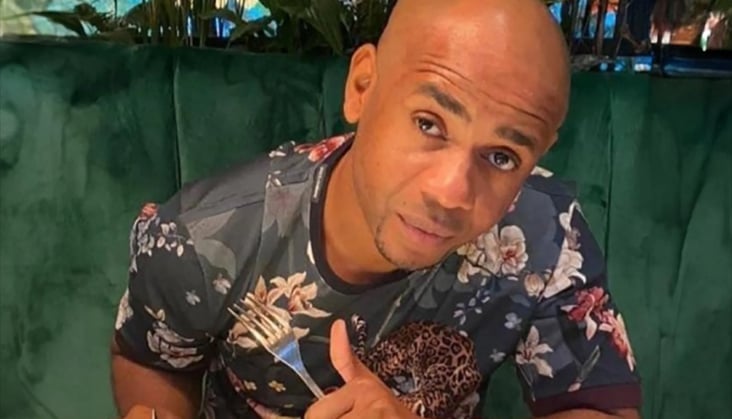 Scandals That Have Tarnished Africa’s Powerful
Scandals That Have Tarnished Africa’s Powerful 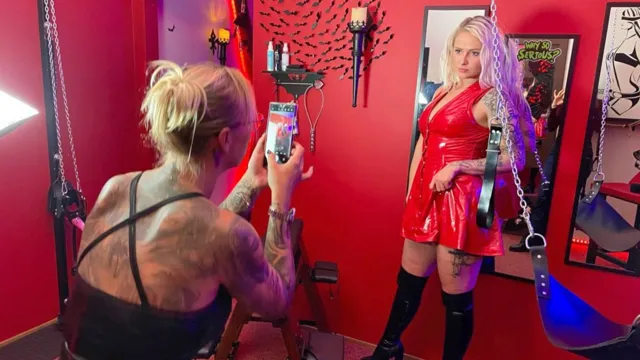 Belgium’s sex workers get maternity leave and pensions under world-first law.
Belgium’s sex workers get maternity leave and pensions under world-first law. 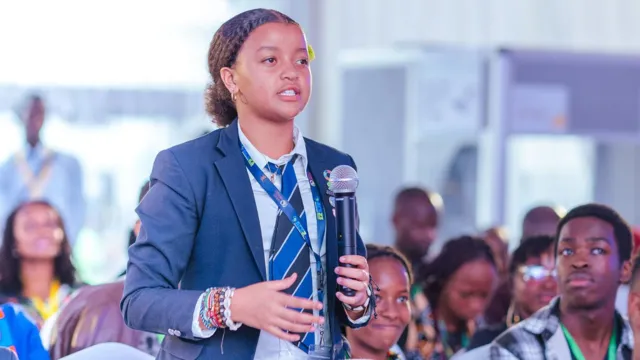 How a Kenyan schoolgirl fell in love with trees.
How a Kenyan schoolgirl fell in love with trees. 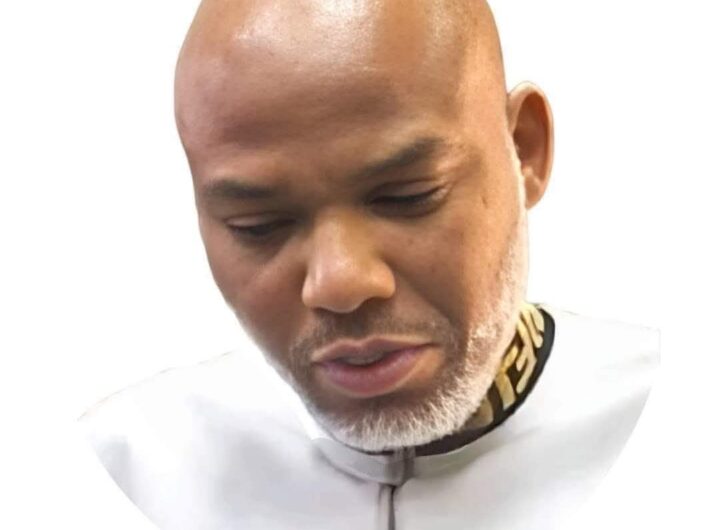 Sowore Alleges Nnamdi Kanu Has Been Secretly Transferred to Sokoto Prison
Sowore Alleges Nnamdi Kanu Has Been Secretly Transferred to Sokoto Prison 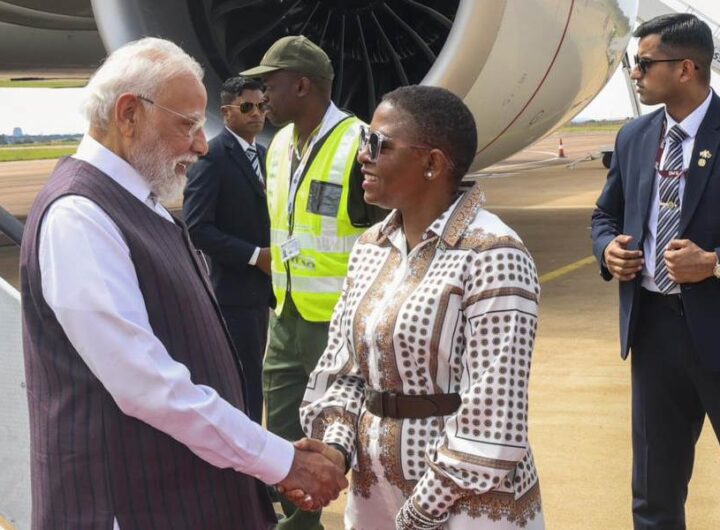 PM Modi Arrives in South Africa for Historic G20 Summit on African Soil
PM Modi Arrives in South Africa for Historic G20 Summit on African Soil 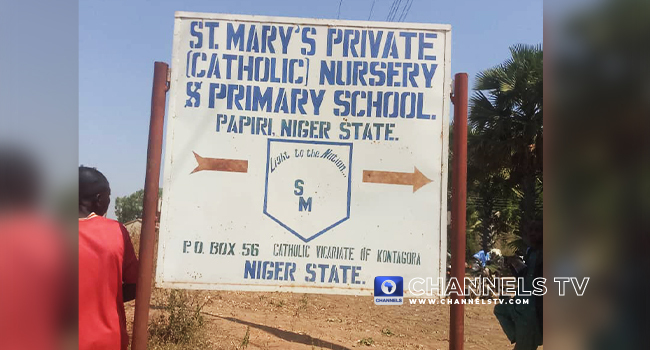 Police, Military Launch Major Search After Students Kidnapped in Niger State
Police, Military Launch Major Search After Students Kidnapped in Niger State 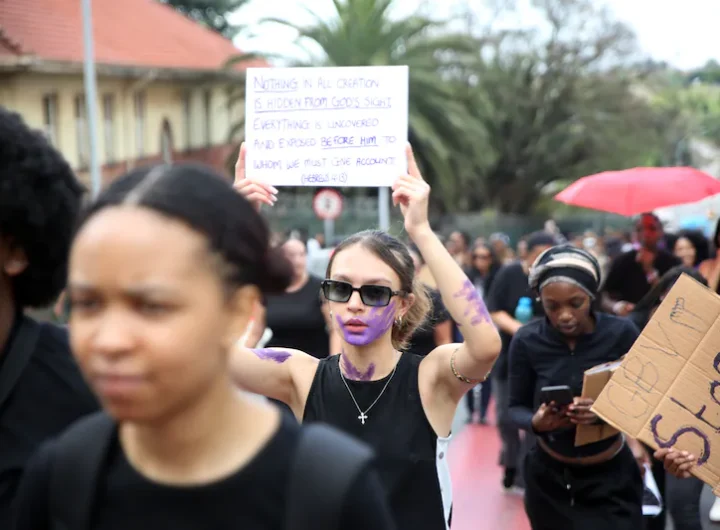 Women for Change Shutdown Demands Action on South Africa’s GBV Crisis
Women for Change Shutdown Demands Action on South Africa’s GBV Crisis